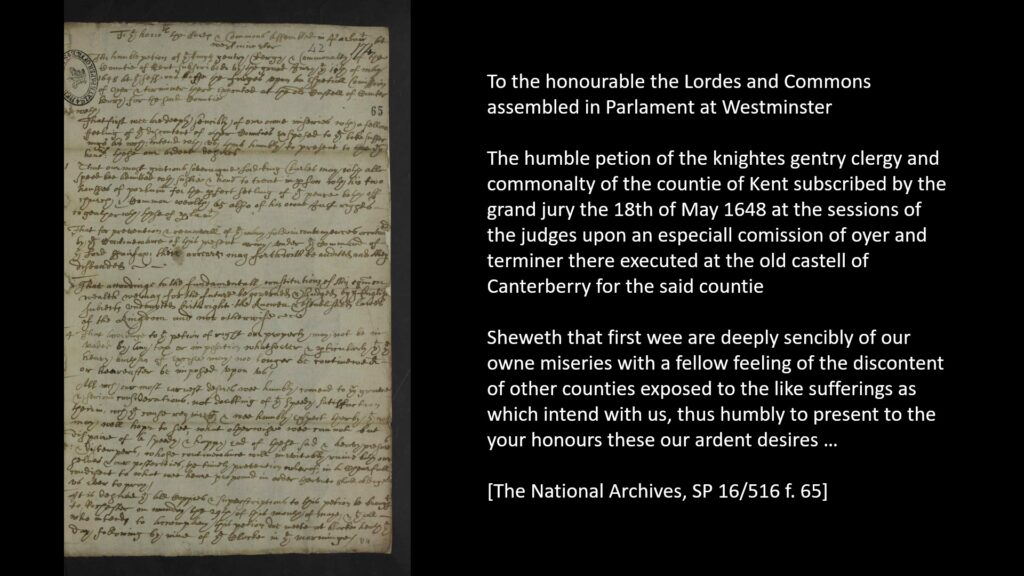Tens of thousands of people submitted requests and complaints to the king and other high-ranking royal officials in seventeenth-century England. Each of these ‘petitions’ tells a story and investigating them further can reveal much about life during this tumultuous century.
As part of ‘The Power of Petitioning’ project, we completed a six-month Shared Learning Project with a group of 46 amateur researchers from the London Region of the University of the Third Age. Each of these researchers wrote one or more reports about the petitioners and their requests or complaints. All of these 149 short pieces of research are now online at ‘Investigating the Lives of Seventeenth-Century Petitioners’, so please take a look at these new investigations to learn more.

We are extremely grateful to the many people involved in this project who made it possible. In addition to the main U3A researchers – listed in full on Investigating Petitioners – we would like to thank Peter Cox, who coordinated the project from the U3A side; Frank Edwards, David Moffatt and Sarah Birt, who helped to edit the reports and get them online; the London Metropolitan Archives and Westminster Archives for introducing the researchers to their collections and offering palaeography training; and of course to the Arts and Humanities Research Council for funding most of the associated costs.
The reports each began with one of the almost 400 transcribed State Paper petitions from across the seventeenth century that we have published on British History Online. These are based on images of manuscripts held at The National Archives at Kew. The photographs were collected by Sharon Howard, transcribed by Gavin Robinson and edited by Brodie Waddell.
The U3A group also completed reports about a number of seventeenth-century petitions submitted to the magistrates of the City of Westminster, which we are preparing organising for publication online. Keep an eye on our project site for a further announcement.
